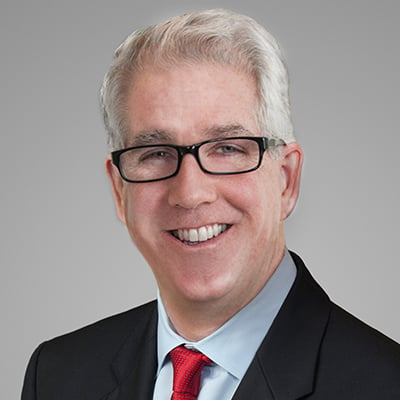This is Why Kirkland’s Hurst Gets the Big Bucks
When James Hurst moved from Winston & Strawn to Kirkland & Ellis in late 2014, he was dubbed “Biglaw’s $9 Million Man” for his reportedly enormous new salary.
The star life sciences litigator appears to be earning his keep. On Thursday, he and Kirkland partner Andrew Kassof co-led a trial team that delivered a blockbuster win on behalf of Abbott Laboratories in Dallas federal court, with George Bramblett of Haynes and Boone as co-counsel.
With more than $1 billion on the line, Abbott was accused of violating the False Claims Act by submitting more than 35,000 improper claims to Medicare.
After a three-week trial, it took the jury just three hours to find for Abbott across the board.
For Hurst, who declined comment, the win follows a $94 million verdict on behalf of AbbVie Inc. against MedImmune LLC in September, and a successful patent challenge on behalf of Hospira Inc. against Merck & Co. in November.
The case against Abbott began 10 years ago, when former Guidant Corp. sales rep Kevin Colquitt, at the time a Georgetown University Law Center student, accused the company of “pervasive off-label marketing schemes which have defrauded the federal and state governments.”
Colquitt’s whistleblower suit focused on bile duct stents, which are intended as short-term, palliative relief for people who have pancreatic or bile duct cancer, and who usually die within a year. Abbott acquired Guidant’s stent business in 2006.
Colquitt said virtually all of the biliary stents were not being used as approved by the Food and Drug Administration, but instead were being pushed for use in the peripheral vascular system--a much bigger market. However, vascular stents require more stringent FDA approval than biliary ones.
Represented by firms including Stein Mitchell Cipollone Beato & Missner and Standly & Hamilton (where Colquitt now works as a lawyer, according to State Bar of Texas records), as well as attorneys from the AARP Foundation Litigation, Colquitt said that between 2004 and 2006, Abbott submitted false claims to Medicare.
He argued that Abbott’s biliary stents were not eligible for Medicare reimbursement because they were not approved by the FDA for vascular use, nor did Abbott have proof that the devices were safe for such use.
The first sign that the case was less than airtight came at the beginning, when the U.S. government declined to intervene.
Studies show that the federal government intervenes in about 20 percent of False Claims Act cases, but that when it does, it's successful 95 percent of the time. In cases without government intervention, plaintiffs prevail only 6 percent of the time.
In a motion for a directed verdict at the close of all evidence, Abbott lawyers laid out why Colquitt’s case fell short.
Here’s a big one: if you want to make a False Claims Act case stick, you have to show evidence of an actual false claim being submitted to the government.
“Colquitt still has not introduced evidence of a single claim submitted to Medicare with a Guidant stent used in a vascular procedure. Without evidence of at least one actual claim, he cannot prove falsity,” Hurst wrote. “Abbott is not contending that Colquitt was required to come forward with each and every claim form submitted to Medicare and show that it used a Guidant stent. Colquitt, however, was required to admit ‘[e]vidence of a concrete false claim actually submitted.’”
Yes, Hurst acknowledged, the evidence introduced at trial showed biliary stents were used in vascular procedures. But so what?
This was “accepted and standard medial practice…Every single vascular physician to testify has stated he or she believed Guidant’s stents were safe and effective for use in vascular stenting procedures.”
Not only that, Hurst argued, the “government knew that off label biliary stents were widely used in vascular procedures and chose to reimburse those procedures.”
The Centers for Medicare and Medicaid Services “understood those procedures were properly reimbursable and not false,” he continued. “They were the best treatment for their patients.”
There’s more.
Hurst also argued that for the “false statement” to be actionable, it had to be capable of influencing the government’s decision to pay for the stent, not the doctor’s decision to use it. “If doctors never conveyed the alleged false statements to the government, those statements cannot--by definition--have a ‘natural tendency to influence, or be capable of influencing’ Medicare’s decision to pay a claim,” he wrote.
The jury agreed, promptly voting 10 to 1 in Abbott’s favor.
Colquitt attorney Chris Hamilton of Standly Hamilton told Bloomberg he plans to appeal the verdict.
REPRINTED WITH PERMISSION FROM THE APRIL 10, 2016 EDITION OF THE AMERICAN LAWYER © 2016 ALM MEDIA INC. ALL RIGHTS RESERVED. FURTHER DUPLICATION WITHOUT PERMISSION IS PROHIBITED

